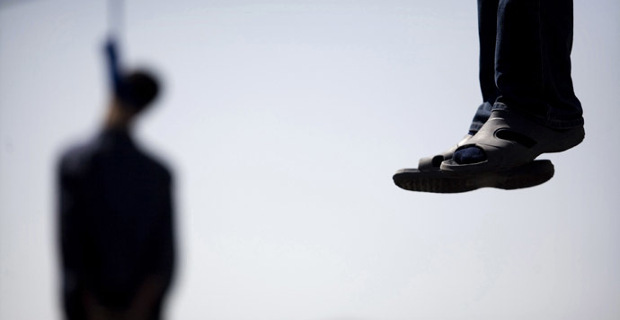
Iran has executed 529 people this year, including more than 300 since President Hassan Rouhani assumed office in August, according to a tally compiled by the Iran Human Rights Documentation Center (IHRDC).
The number of executions have significantly spiked since Rouhani took office, leading some to argue that this clashes with his image as a moderate reformer.
Iran now has the dubious honor of being the global leader per capita in executions, according to the IHRDC.
The sharp spike in killing has prompted criticism from some observers who say that the United States and other Western nations are ignoring Tehran’s massive human rights infractions in order to facilitate Iran’s approval of a final nuclear accord.
“Under the shadow of negotiations, however, Iran’s appalling human rights situation has hardly changed,” Iranian activists Payam Akhavan and Shirin Ebadi wrote in a recent Washington Post op-ed.
Executions have actually increased as Tehran engages in talks with the West, according to Akhavan and Ebadi.
Many of those executed by Iran, mainly by hanging, were accused of being a “Moharebeh,” or one who is designated as “waging war against God” under Islamic law.
Many others were hung in secrecy and after being convicted of crimes during closed trials that human rights observers classified as unfair and lacking in international standards.
However, others maintain that the spike is a result of internal divisions and power struggles between Iran’s so-called moderate wing and its more hardline judiciary.
The execution figures are compiled from both official and unofficial reports in the Iranian media and elsewhere. The Iranian government has officially acknowledged at least 400 executions in 2013.
The White House admits that human rights issues are not being discussed during the nuclear negotiations.
“As we have consistently made clear, the P5+1 negotiations with Iran have focused exclusively on the nuclear issue,” a senior Obama administration official told the Washington Free Beacon. “It is important to note that progress on the nuclear issue does not change our resolve in pushing back against Iranian support for terrorism, threats against our friends and partners, and violations of human rights.”
Iranian officials and others have said that the United States unsuccessfully attempted to broach human rights and other issues during the talks.
“The Americans asked to open other files during the nuclear negotiation, but the Iranians insisted on limiting the debate,” Hezbollah leader Hassan Nasrallah was quoted as saying earlier this month.
An Iranian official made similar claims to al-Monitor.
“Iran knows what it wants, and that’s what we are after,” an anonymous Iranian official was quoted as saying.
“The Syrian crisis wasn’t at the heart of the negotiations, but it was discussed thoroughly during side talks,” the source reportedly said. “Moreover, there was an American request that we discuss possible options whenever the nuclear deal is sealed, and that’s why some regional powers asked the French to put their spanners [wrench] into the talks, and here we are.”
Iran has long been a global leader in executions and political imprisonment.
Many of those executed are drug dealers and traffickers who have been arrested and imprisoned on charges that do not adhere to international judicial standards.
Most of these Iranian drug convicts are killed publicly, often by hanging from a crane.
Another four political prisoners from the ethnic minority Ahwazi Arab population were executed under questionable circumstances last week after facing torture, imprisonment, and secret trials that activists criticized as unfair.
Former Pentagon adviser Michael Rubin said that Iran’s moderate outreach is often paired with a domestic crackdown.
“It’s a common pattern: Iran always couples external outreach with increasing repression at home,” said Rubin, author of Dancing with the Devil: The Perils of Engaging Rogue Regimes.
“Basically, the ayatollahs are telling their people: ‘Make no mistake. Our moderation is for external consumption only. And to make sure you understand that, we are going to ramp up executions,’” Rubin said.
Washington Free Beacon published this report on 9 December 2013